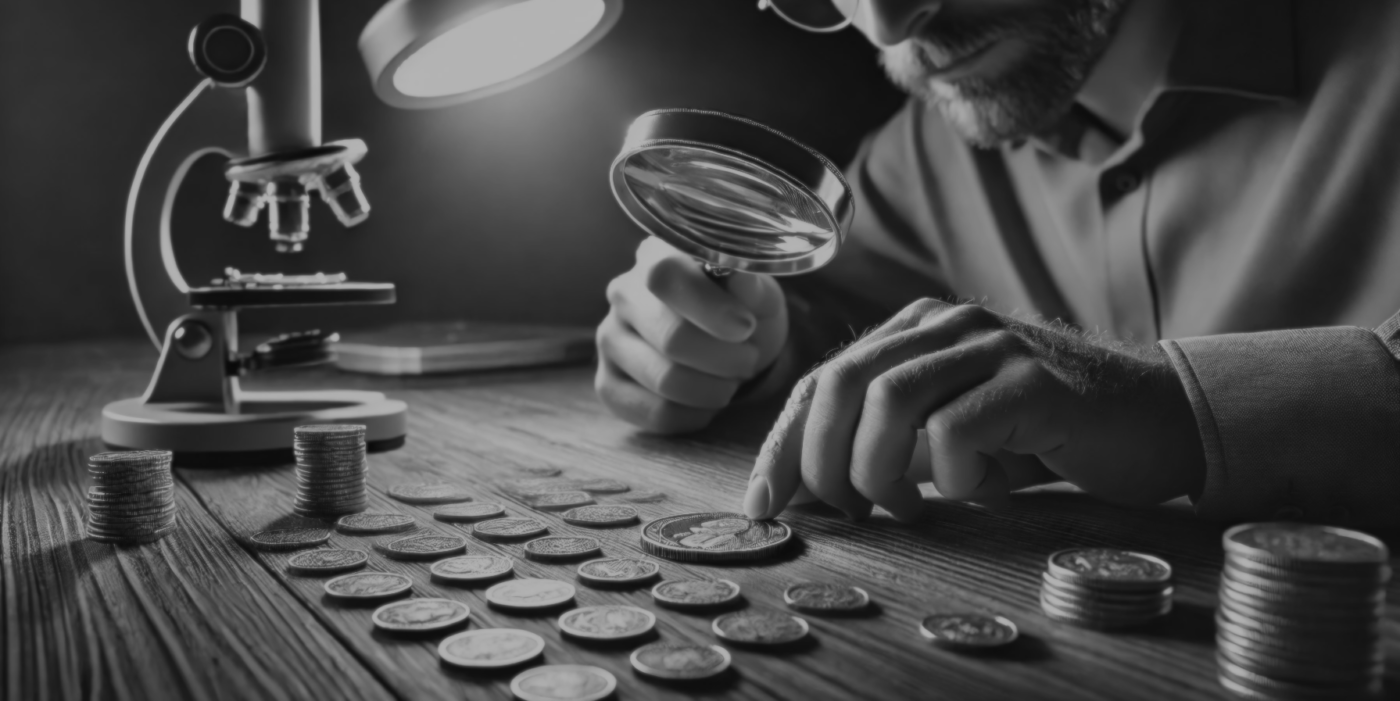Investing in Numismatics: Tips for Beginners Part-1
💵 Investing in numismatics can be a rewarding venture, both financially and intellectually, but it requires careful planning, research, and a keen eye for detail. Here are some essential tips to help you start your journey in numismatic investment:
1. Understand the Basics of Numismatics
Before diving into the market, take the time to learn the fundamentals of numismatics. Familiarize yourself with the terminology, grading scales, and different types of coins, such as bullion, proof, and circulation coins. Knowing the difference between these categories can help you make informed decisions about what to invest in.
2. Research Historical Significance and Rarity
Coins with historical significance or rarity often hold more value over time. Coins that were minted during pivotal historical events, feature famous figures, or were produced in limited quantities are generally more desirable to collectors and investors alike. For instance, a rare 1933 Saint-Gaudens Double Eagle can be worth millions due to its limited mintage and historical background.
3. Examine the Condition and Grading of Coins
Coin grading plays a critical role in determining a coin’s value. Coins are graded on a scale from 1 to 70, with higher grades indicating better condition. Coins in mint state (MS) or proof condition (PR) tend to be the most valuable. Always seek coins that have been graded by reputable grading services like the Professional Coin Grading Service (PCGS) or the Numismatic Guaranty Corporation (NGC). Investing in higher-grade coins can offer greater returns over time.
4. Diversify Your Portfolio
Just like in any other investment, diversification is key. Rather than concentrating on a single type or category of coins, consider diversifying across different periods, regions, and coin types. A balanced portfolio might include ancient coins, world coins, and modern commemoratives, along with bullion coins made from precious metals like gold, silver, or platinum.
5. Set a Budget and Stick to It
Determine your budget before you start buying coins. Investing in numismatics can be an expensive hobby, and it’s easy to get carried away by the allure of rare finds. Setting a clear budget helps you stay within your financial limits and prioritize which coins are the most worthwhile investments.
6. Stay Informed About Market Trends
The numismatic market can fluctuate based on factors such as economic conditions, changes in metal prices, and collector demand. Keep up with market trends by following reputable numismatic publications, attending coin shows, and joining collector forums. Staying informed will help you make timely buying and selling decisions.
7. Consult Experts and Build a Network
Building relationships with experienced collectors, dealers, and numismatic experts can provide valuable insights and guidance. Experts can help you avoid common pitfalls, provide authentication services, and alert you to potential investment opportunities. Consider joining numismatic societies or local coin clubs to expand your network.
8. Beware of Fakes and Counterfeits
The market is rife with counterfeits, especially among high-value and rare coins. Always purchase from reputable dealers and insist on proper certification from recognized grading services. Learning to identify common signs of counterfeiting, such as incorrect weight, poor craftsmanship, or wrong metal composition, can also protect your investments.
9. Consider the Long-Term Potential
Numismatic investing is often more about long-term potential than short-term gains. Coins typically appreciate over time, especially those that are rare or have historical significance. Be prepared to hold onto your coins for several years or even decades to maximize their investment potential.
10. Secure and Insure Your Collection
Proper storage and security are essential to protect your investment. Coins should be stored in a controlled environment, such as a safe deposit box or a secure home safe, away from extreme temperatures and humidity. Additionally, consider insuring your collection to safeguard against theft, loss, or damage.
📈 Diversify your collection by investing in coins from various periods and regions. Seek advice from experts and stay informed about market developments to make informed investment decisions.
Disclaimer: The information provided in this blog post is for educational and informational purposes only and should not be construed as financial or investment advice. While every effort is made to ensure accuracy, we do not guarantee the completeness or reliability of the information. Investments in numismatics and precious metals carry risks, and past performance does not guarantee future results. Before making any investment decisions, you should conduct your own research or consult with a qualified financial advisor. uNumismatics is not responsible for any losses incurred from investing based on the information provided in this article.


Comments are closed.